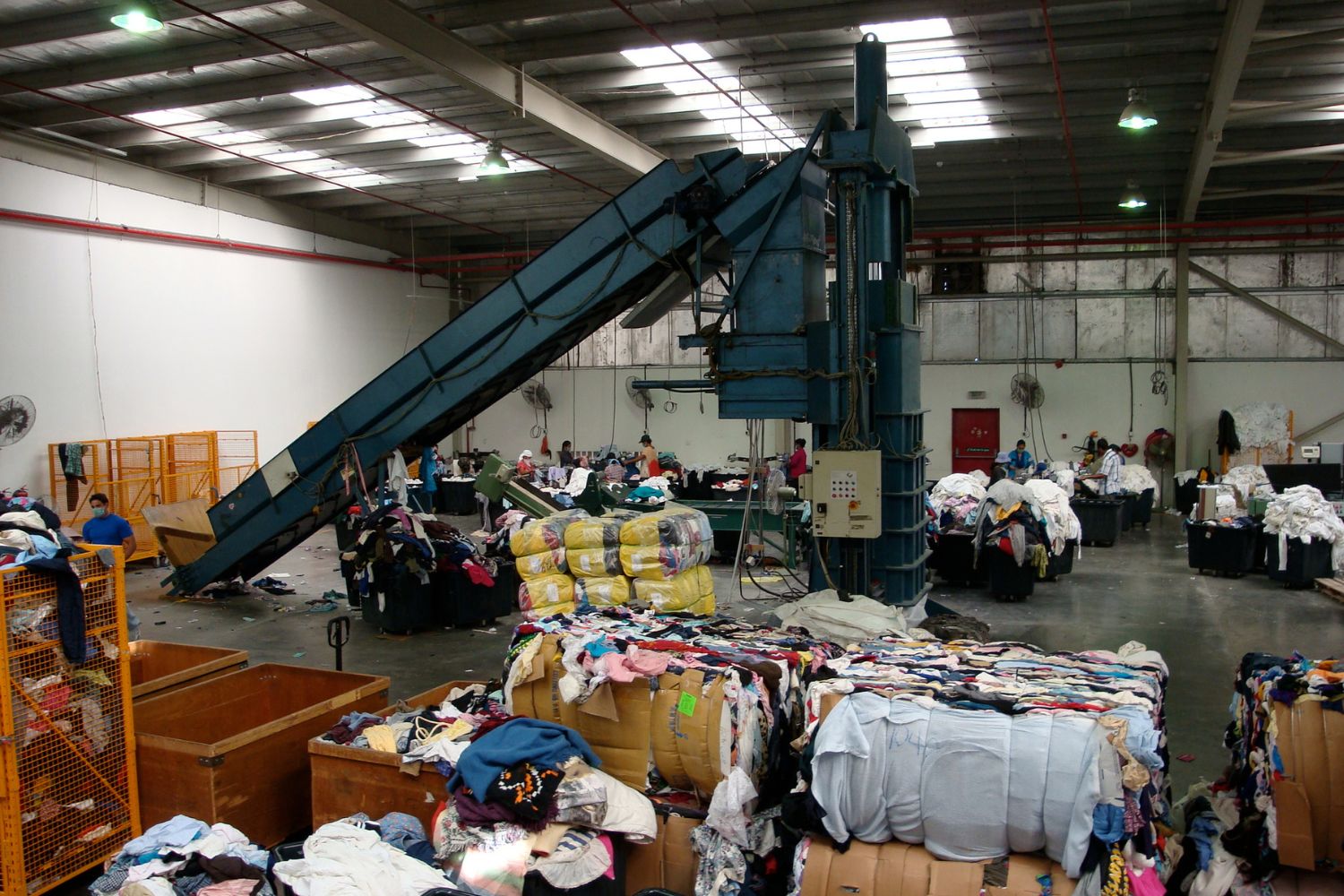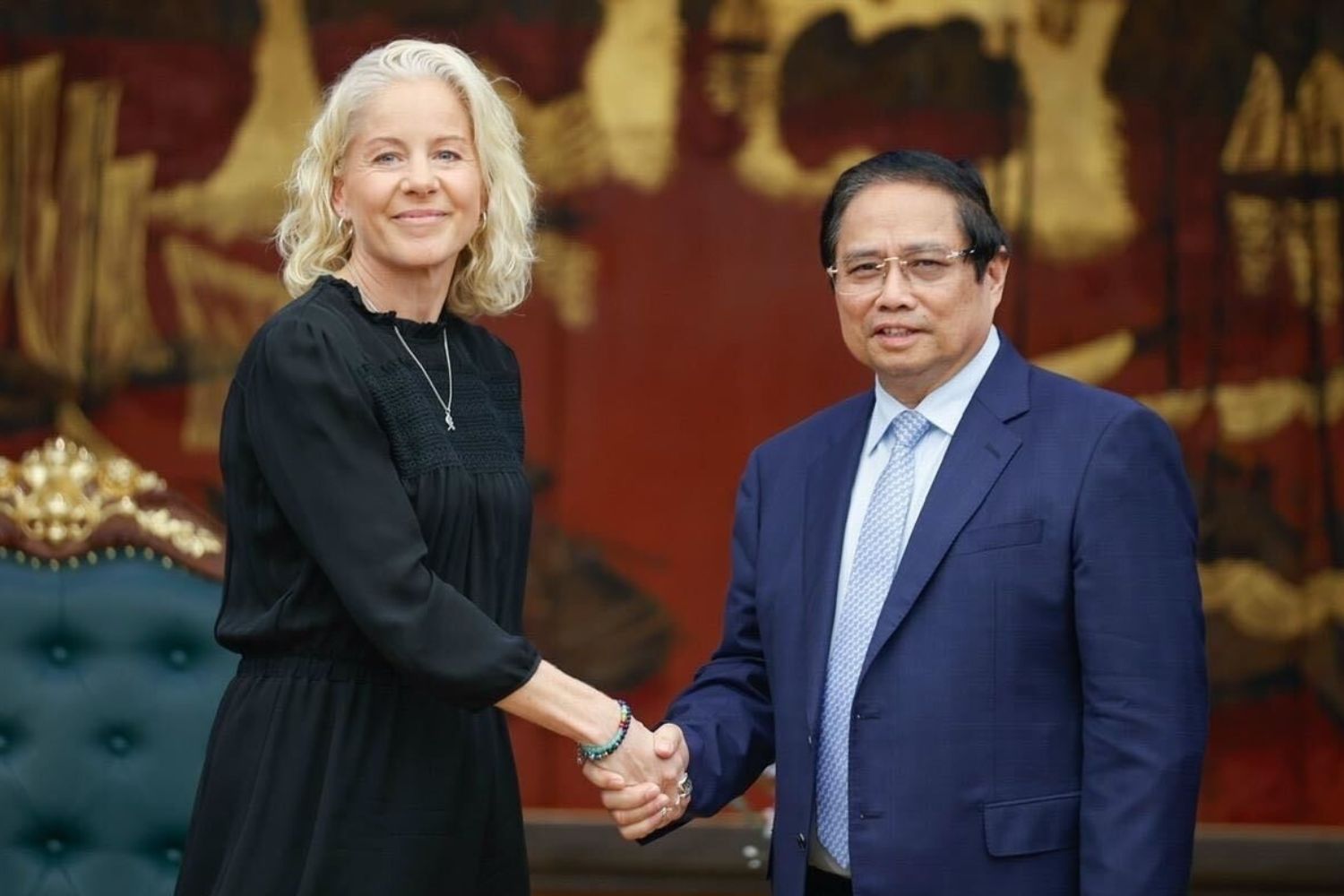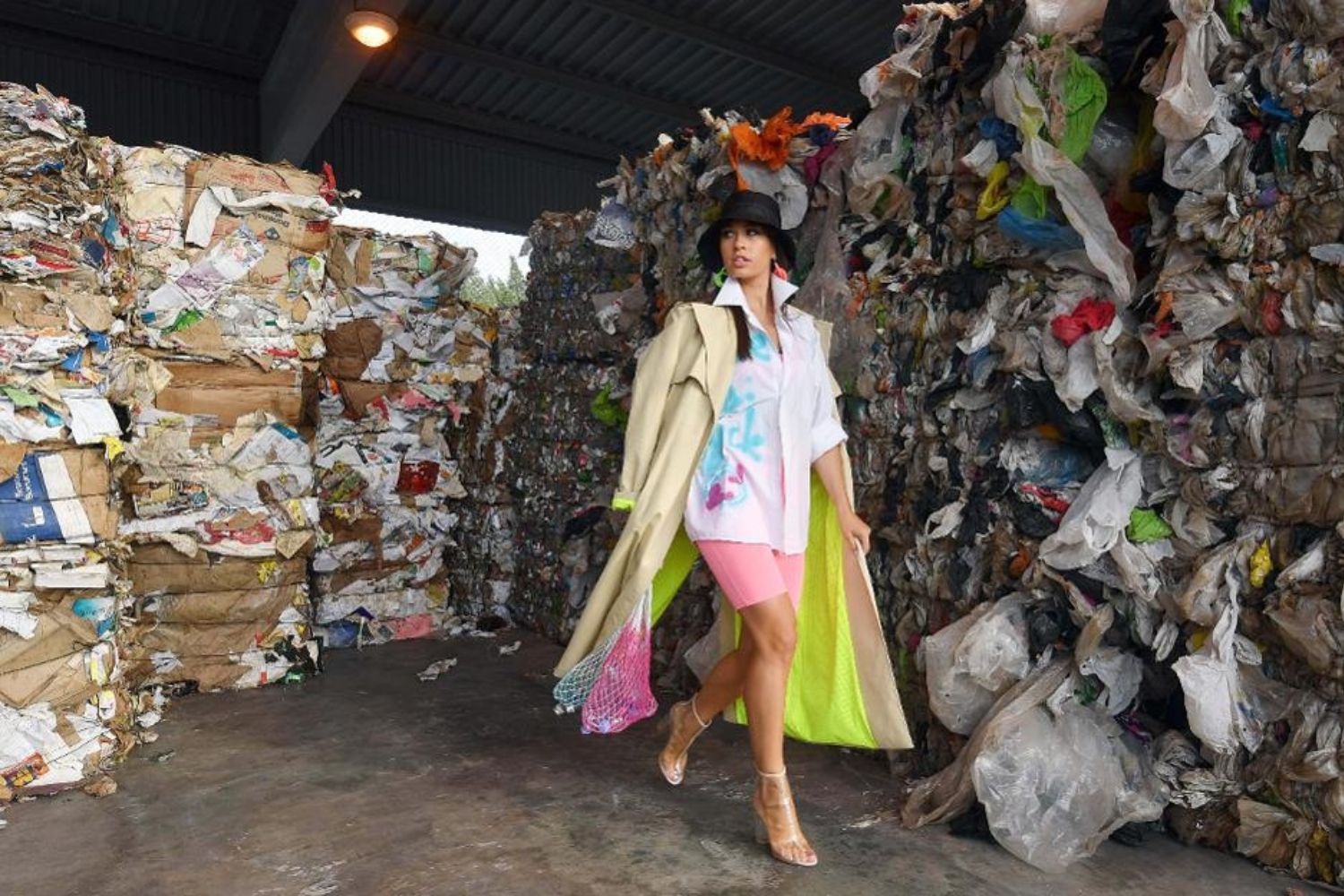Vietnam is the third-largest producer of fast fashion, closely behind China and Bangladesh.
As a result of the rapid growth in fast fashion items, the waste from these items is sent back to countries in the global south to face the burden of tonnes of unwanted textile waste.
In a significant move towards sustainable fashion, Syre—a joint venture between H&M Group and investment firm Vargas—has announced plans to establish a $1 billion textile recycling facility in Vietnam’s Binh Dinh province.
 Image The Textile Exchange
Image The Textile Exchange
This initiative aims to position Vietnam as a global leader in circular textile innovation.
Why Recycle in Vietnam?
Vietnam was selected for its strategic position in the global textile supply chain, robust infrastructure, and commitment to sustainable development. The country is also known for its tropical flora and fauna that should be protected.
Prime Minister Pham Minh Chinh has expressed strong support for the project, highlighting Binh Dinh’s investment-friendly environment, access to clean energy, and well-developed infrastructure, including highways, international airports, and deep-water ports.
 Image Syre: Chair Susanna Campbell and Pham Minh Chinh, Prime Minister of Vietnam
Image Syre: Chair Susanna Campbell and Pham Minh Chinh, Prime Minister of Vietnam
The Vietnamese government has encouraged Syre to prioritise the use of locally sourced green materials, such as lotus and jute fibres, and to utilise recycled fabric scraps and old clothing generated from within and outside the country.
Paving the way for the Circular Economy
Syre’s planned facility is designed to process up to 250,000 metric tons of textile waste annually, converting it into high-quality recycled polyester.
 Image Vietnam Times
Image Vietnam Times
Utilising advanced technologies such as automated sorting, fibre identification via spectroscopy, and depolymerisation units, the plant will recover textile-grade raw materials at a commercial scale, feeding them back into the global garment manufacturing system.
Susanna Campbell, Chairwoman of Syre, stated:
“We believe Vietnam has the potential to become a global leader in developing a circular economy."
 Image Vietnam Times
Image Vietnam Times
The Bigger Picture
Vietnam is not the only country that is forced to shoulder the burden of others’ textile waste, but it is the first country to take action to address it.
The recycling industry is still in its early stages, but Syre is making it accessible and scalable. This not only helps kickstart the circular economy but also provides a solution for the Global South to handle unwanted waste.
For more news in sustainability, be sure to follow Reflawn's news page.
Why is recycling in Vietnam important?
Vietnam is a key manufacturing hub for the fashion industry and is now stepping up as a leader in circular solutions, turning its role in global supply chains into an opportunity for sustainable innovation.
When will the project launch?
The Memorandum of Understanding (MoU) was signed in early 2024, with construction and development plans underway. Exact timelines will depend on permits, infrastructure, and development milestones.
Why is it important to recycle textiles?
Recycling textiles is important because it reduces landfill waste, conserves resources, lowers carbon emissions, and helps create a circular fashion system that’s less harmful to the planet.


.png&w=3840&q=75)





.png&w=3840&q=75)
.png&w=3840&q=75)